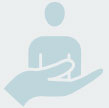Start Your New Life Today
- Supervised Detox & Residential Rehab
- Same-Day Admissions
- Dual-Diagnosis & Trauma-Informed Treatment
- Evidence-Based Personalized Plans
- Luxurious Accommodations
Start Your New Life Today
- Supervised Detox & Residential Rehab
- Same-Day Admissions
- Dual-Diagnosis & Trauma-Informed Treatment
- Evidence-Based Personalized Plans
- Luxurious Accommodations

Your Healing Journey Begins Here
In our care, patients are treated like family. We know how hard it is for someone struggling with alcoholism or addiction to make that first call for help.
Our caring and compassionate admissions team is standing by 24/7, waiting for you or a loved one to start the process with us and make the important first step towards recovery.
Our services include personalized treatment programs that can be customized for you or your loved one. We will lay the foundation for long-term recovery by teaching coping strategies and life skills so that our clients can leave addiction behind for good!
Get The Help You Need Today
In our care, patients are treated like family. We know how hard it is for someone struggling with alcoholism or addiction to make that first call for help.
Our caring and compassionate admissions team is standing by 24/7, waiting for you or a loved one to start the process with us and make the important first step towards recovery.
Our services include personalized treatment programs that can be customized for you or your loved one. We will lay the foundation for long-term recovery by teaching coping strategies and life skills so that our clients can leave addiction behind for good!

Levels of Care

Supervised Detox
Ensure a safe and comfortable detox process with 24/7 medical care.

Inpatient Rehab
Personalized therapeutic care after detoxification to lay the foundations of a strong recovery.

Aftercare
Continued assistance following residential treatment to ensure a positive ongoing support system for patients.

Supervised Detox
Ensure a safe and comfortable detox process with 24/7 medical care.

Inpatient Rehab
Personalized therapeutic care after detoxification to lay the foundations of a strong recovery.

Aftercare
Continued assistance following residential treatment to ensure a positive ongoing support system for patients.
Why Choose Pathways Recovery Center
At Pathways Recovery Center, we are strong advocates of evidence-based treatment methods tailored to the unique needs of each individual — strategies proven to work.
Our program offers dual diagnosis treatment, which means we aim at solving the root causes of addiction, such as trauma, depression, and anxiety.
Whether you’re seeking assistance for yourself or a loved one, our team is here to support you through the entire process of discovering a treatment program tailored to your individual needs.
Our Mission is to offer premier services, tailored therapy, and high-quality, evidence-based treatments for drug and alcohol addiction and co-occurring disorders.

Why Choose Pathways Recovery Center
At Pathways Recovery Center, we are strong advocates of evidence-based treatment methods tailored to the unique needs of each individual — strategies proven to work.
Our program offers dual diagnosis treatment, which means we aim at solving the root causes of addiction, such as trauma, depression, and anxiety.
Whether you’re seeking assistance for yourself or a loved one, our team is here to support you through the entire process of discovering a treatment program tailored to your individual needs.
Our Mission is to offer premier services, tailored therapy, and high-quality, evidence-based treatments for drug and alcohol addiction and co-occurring disorders.

Make The Call That Changes Everything






Testimonials
See what others are saying
⭐⭐⭐⭐⭐

⭐⭐⭐⭐⭐

⭐⭐⭐⭐⭐

⭐⭐⭐⭐⭐

⭐⭐⭐⭐⭐

Verify Your Insurance Benefits
We take all PPO Insurance. No Medicaid or Medicare.




And many more.
Verify Your Insurance Benefits
We take all PPO Insurance.
No Medicaid or Medicare.




And many more.
